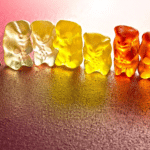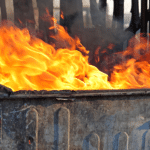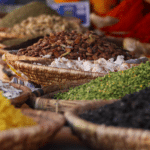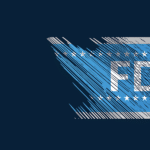If not for Dennis Peron, the courageous cannabis and gay rights activist who died on Jan. 27, 2018, medical marijuana might not be legal throughout much of the United States today. This book excerpt from Smoke Signals by Project CBD director Martin A. Lee describes the San Francisco Cannabis Buyers’ Club, the first medical marijuana dispensary in America, which Peron established and ran in open defiance of federal and state law.
“It was a place where people came to laugh for the last time before they died.”
To accommodate a deluge of new members, Dennis Peron moved the San Francisco Cannabis Buyers Club in 1995 to a converted five-story warehouse at 1444 Market Street, a busy locale near the San Francisco Civic Center.
Entering this expansive, well-lit concrete-and-glass structure, marked only by a red cross in the front window, was a mind-altering experience in and of itself. To join the San Francisco Cannabis Buyers’ Club, one had to produce a photo ID and a doctor’s note certifying that one had a condition that could be helped by marijuana. Senior citizens were granted automatic admission. (“People in the autumn or sunset of their lives have a right to any medicine that helps them feel better,” Peron insisted.) The walls and ceilings of the top three floors, where patients congregated, were cluttered with masks, fans, found art, marionettes, rainbow flags, and origami paper birds. Bulletin boards posted notices about AIDS treatments, wheelchair maintenance classes, and memorials to those who recently passed away. Half of the club’s 11,000 members and most of the staff were people with AIDS.
The San Francisco Cannabis Buyers’ Club employed close to one hundred people—food servers, “bud tenders,” janitors, clerical workers, carpenters, security guards. The club featured a Jerry Garcia elevator with piped-in rock music and several large rooms where members lounged on mismatched secondhand couches and easy chairs, casually passing joints and pipes while engaging in animated conversation. After they inhaled a few puffs of a doobie, the disabled and the dying seemed to forget their most onerous symptoms. Raucous laughter often filled the air, which reeked of thick, aromatic fumes. “People are smoking pot openly here!” blurted a breathless CBS 48 Hours correspondent.
Patrons lined up at counters to choose from a daily menu of pot specials—smokables, edibles, tinctures, and topicals. Several strains of bud were displayed beneath a sign that read “The Island,” a memento from Peron’s first cannabis café in the Castro. Wholesome food went for a dollar a plate; the cooler stored juice and liquid supplements. For dessert or snacks, the “Brownie Mary Bar” offered baked goods with a range of potencies. The club also sold hemp clothing and smoking paraphernalia, along with copies of Brownie Mary’s Marijuana Cookbook & Dennis Peron’s Recipe for Social Change, which included some homegrown advice: “Mix, in a big country, a magic herb, a blend of people (do not separate), and lots of chutzpah. Pour off prohibition, strain out and discard unjust laws. Use no DEA. Whip media into frenzy. Smoke remainder for several days. Serve.”
The bustling pot dispensary was always crowded on Tuesdays and Thursdays when Peron gave away free bags of marijuana to poor patients—not just people with AIDS, but also those suffering from cancer, multiple sclerosis, spinal cord injuries, glaucoma, arthritis, and other degenerative conditions. Nor did Dennis dismiss those suffering from “common afflictions” just because their pain or disability didn’t entail chemo or a wheelchair.
The San Francisco Cannabis Buyers’ Club wasn’t only about smoking grass. “Marijuana is part of it, but the biggest part of healing is not being alone,” said Peron, who intuitively grasped a profound truth that experts often overlooked in the age of high-technology medicine: social isolation is bad for one’s health. The pot club was therapeutic by design—a setting where wheelchair-bound patients and other chronically ill individuals could hang out, smoke reefer, make new friends, and interact with those who shared their plight. It was a place where people came to laugh for the last time before they died.
“Sick people tend to withdraw, and that’s the worst thing they can do,” Peron explained. “We don’t have a delivery service, because we want them to get out of the house.” His club pioneered what sociologists would later refer to as the “San Francisco model”—the marijuana dispensary that allows on-site medication and encourages patients to socialize, form support networks, and avail themselves of counseling and recreational facilities. The social aspect of the Cannabis Buyers’ Club played a crucial, salutary role, improving the quality of life and perhaps even prolonging the life of many of its members.
Excerpted from Smoke Signals: A Social History of Marijuana—Medical, Recreational and Scientific. This article may not be reproduced in any form without approval from the source. Martin A. Lee is the director of Project CBD. He’s authored and edited several books, including Smoke Signals, Acid Dreams, and The Essential Guide to CBD.







